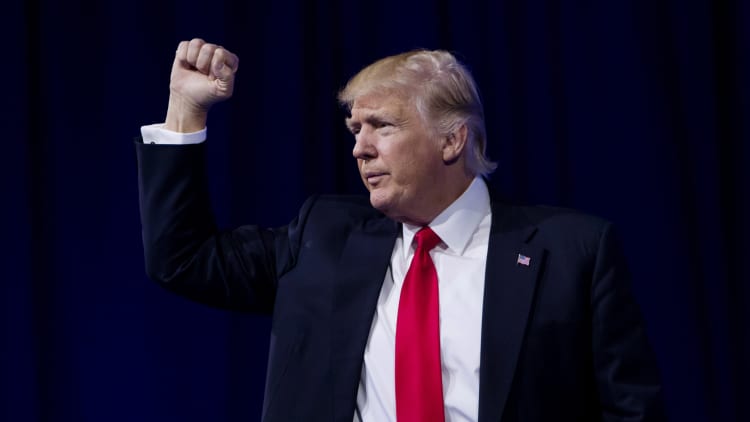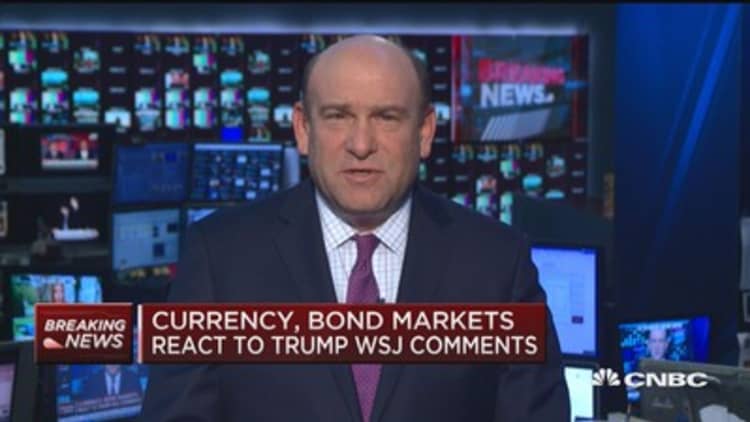
President Donald Trump's comments that the dollar is getting too strong and that the Fed should keep rates low may be sending a clue about how the president would approach both tax reform and infrastructure spending.
That could be by issuing more U.S. debt, while Congress has been trying to come up with a plan to take the corporate tax rate to 20 percent without raising the deficit.
"If any of his budgets are really realized, they're deficit-inducing and he wants to keep interest rates low. Any president that's wanted to keep interest rates low has ended up with a lot of inflation, like Truman, Johnson and Nixon," said Diane Swonk, CEO of DS Economics.
In an interview with The Wall Street Journal, the president Wednesday also made much warmer comments about Federal Reserve Chair Janet Yellen. He said he respects her but has not decided whether to ask her to remain after her term expires early next year. In response to a question about whether she's toast, he said, "No, not toast."
"It's interesting. This also illustrates the gap between the administration and the House and Senate. The House and Senate have consistently wanted someone more hawkish at the Fed than Janet Yellen," said Swonk. "It doesn't surprise me one bit."
"His position on Yellen has changed a lot since he was candidate Trump," said Ward McCarthy, chief financial economist at Jefferies. "Now that he's President Trump, a low interest rate policy is not so bad because he wants the economy to grow well."
Trump was a real estate developer and used debt freely to expand his empire. Trump has said, in the past, that he likes debt and in fact called himself the "king of debt." Trump wants to do a big infrastructure package.

The congressional plan to help fund tax reform currently is to use a border adjustment tax to offset tax breaks for corporations. But the tax, which would tax imports at 20 percent but not exports, is expected by some economists to drive up the dollar by about 25 percent. That would offset the higher cost of goods coming into the country, but critics say it could hurt exports. The opponents also say the dollar may not rise as expected, and consumers could get hurt by higher prices.
The administration has not taken a formal position on the border adjustment tax. Trump also in another interview Wednesday said health-care reform would come before tax reform. The elimination of Obamacare and a new health-care plan would have generated more than $1 trillion for tax reform, and a border adjusted tax would generate about the same over 10 years.
Congress last month failed to vote on a plan to replace Obamacare.
"Without border adjustment, you're $2.3 trillion in the hole and that means you have to move to a higher corporate tax rate," said Swonk. The problem there is many of the biggest U.S. companies pay about a 25 percent rate, while the rate is 35 percent.
McCarthy said it's not clear that whether these comments from Trump indicate anything about the way Trump is currently thinking about tax reform.
"A big focus of President Trump's objectives is trade and consequently he just doesn't want a dollar that's too strong. It's going to hurt the U.S. trade position," he said.
This may be setting up the way the administration may try to tackle tax reform and "deficit infrastructure spending," said Swonk.


